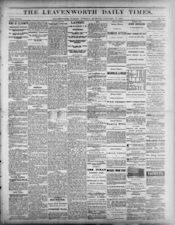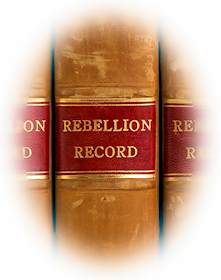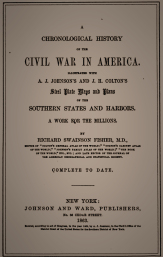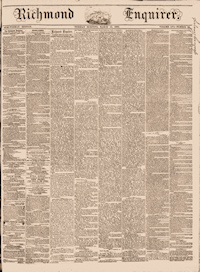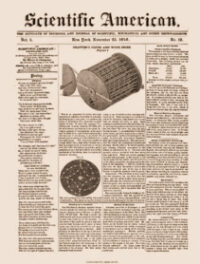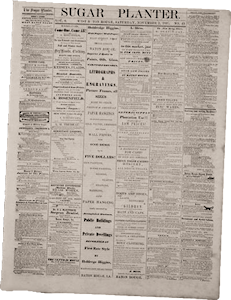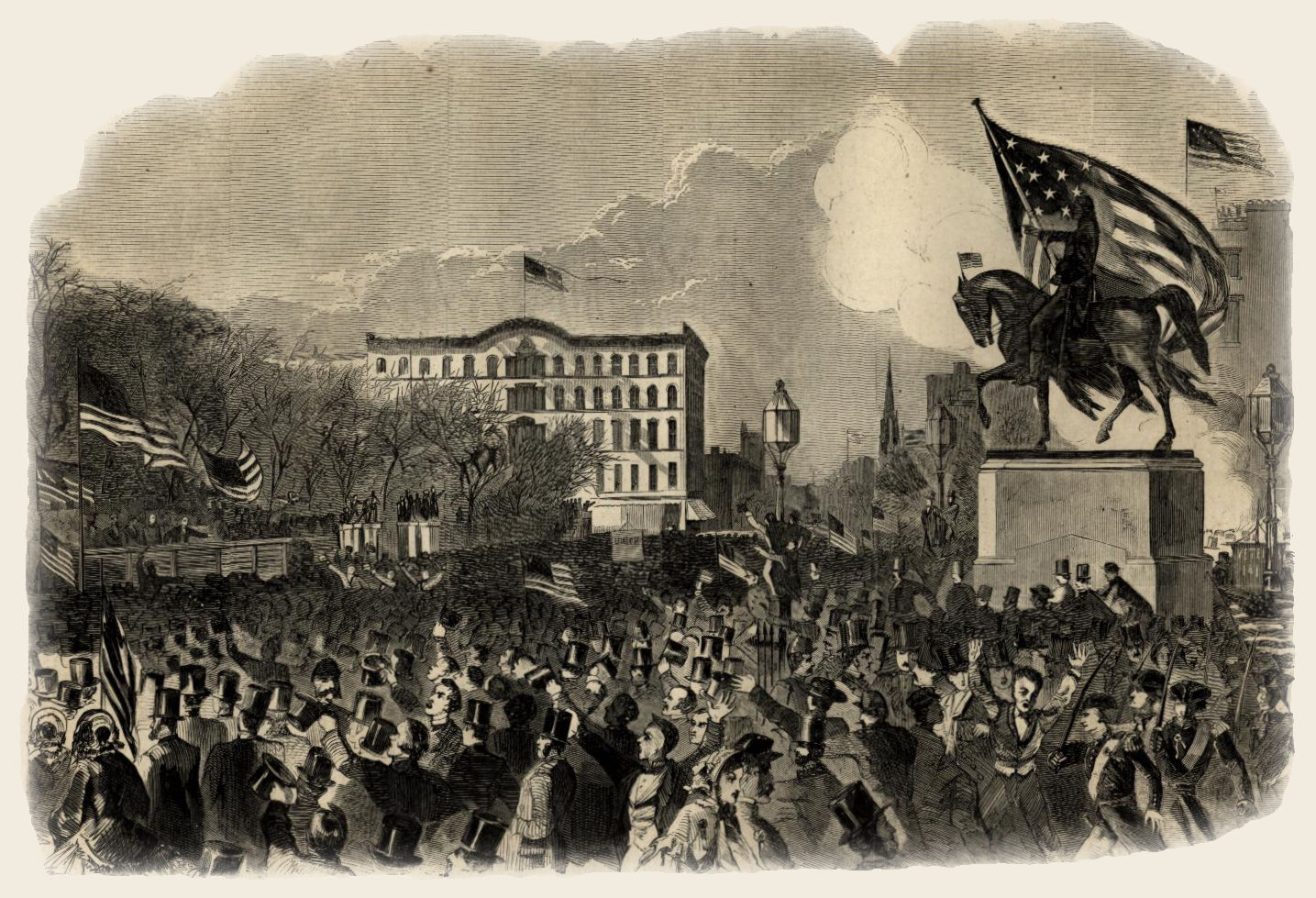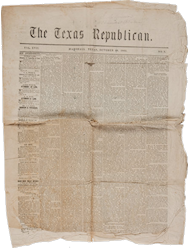–The railroad between Philadelphia and Baltimore was taken possession of by the U. S. Government. Orders were given from the Navy Department at Washington to the officers of the various United States vessels, that all persons found sailing under Jefferson Davis’ letters of marque and reprisal be treated as pirates. That the contumacious be immediately hung from the yard-arms, and the crew and the more penitent officers be placed in irons to await their trial as ocean brigands.–Times, April 21.
–The people of Oswego and Rochester, N. Y., Toledo, Dayton, and Zanesville, Ohio, subscribed large sums of money for the support of the volunteers and their families; at the latter place, large property holders agreed to give rent free to volunteers during their absence.– Albany Journal.
Scott telegraphed to Senator Crittenden of Kentucky, as follows:
“I have not changed; have no thought of changing; always a Union man.”–(Doc. 78.)
–George William Brown, mayor of Baltimore, Md., had a consultation with the President of the United States, in reference to the passage of northern troops through Baltimore. On his return from Washington, the Mayor submitted to the people a statement as to his interview with the President.–(Doc. 79.)
–The Worcester third battalion of Rifles, arrived at New York. They are commanded by Major Charles Devens, and number 266 men, officered as follows: Company A, Worcester City Guard, Capt. A. B. R. Sprague; First Lieut., J. Pickett; Second Lieut., O. Moulton; Third Lieut., G. Egra.
Company C, Emmett Guard, Capt McConville; First Lieut., F. McCafferty; Second Lieut., M. O. Driscoll; Third Lieut., T. O’Niel; Fourth Lieut., – Melvin.–Times, April 22.
–A mass meeting of citizens, numbering many thousands, was held in Boston, Mass., this forenoon, and was addressed by Fletcher Webster, Charles L. Woodbury, and many distinguished citizens. The meeting was to raise a regiment for Fletcher Webster, and was completely successful. The most intense enthusiasm prevailed among the crowd. The meeting continued till nearly night. It was a remarkable expression of the entire voice of our people.–N. Y. Tribune, April 22.
–The First Regiment of Rhode Island Volunteers passed through New York, on their way to the South. Governor Sprague accompanies these troops, as commander in chief of the Rhode Island forces. His staff consists of Colonels Frieze, Goddard, Arnold, Capt. A. W. Chapin, Assistant Adjutant-General.–(Doc. 80.)
–The Sixth, Twelfth, and Seventy-first Regiments, New York State Militia, left New York for Washington this day, (Sunday.) The people were early astir, and by 10 o’clock every available spot where a human being could stand, was occupied, throughout the entire length of Broadway; and from near Canal-street to Grace Church, not only the sidewalks, but the whole of the street, was densely thronged. Every window, door, stoop, balcony, and house-top, were alive with human beings, of every age, sex, and condition, awaiting the marching of the Regiments, which it was known would depart during the day for the seat of Government, or other destination where their services might be required. It was some time after the bells had summoned the worshippers to their respective churches before the troops made their appearance. As they marched along, no language can do justice to the enthusiasm with which the assembled multitude greeted them. Cheers from ten thousand voices swelling in prolonged chorus, the waving of handkerchiefs by fair hands, the display of flags and streamers throughout the route of march, made the scene one of the most animated and exciting ever witnessed in the city.–Times, April 22.
–The United States branch mint at Charlotte, North Carolina, was seized by the State authorities. No resistance was offered. Colonel Bryce now holds it with a military force, under orders from Governor Ellis.–N. Y. Evening Post, April 29.
–Wendell Phillips delivered a discourse in Boston on the present rebellion. Some time ago he made a speech deprecating, in the most emphatic manner, any appeal to arms, as certain to result in the renewed and permanent triumph of slavery. The people of the North, he said, would not fight, and the first result of a military demonstration would be the complete surrender of the North, and the concession of everything that might be demanded at their hands.–(Doc. 81.)
–Andrew Johnson, U. S. Senator from Tennessee, passed through Lynchburg, Va., on his way from Washington to Tennessee. A large crowd assembled and groaned at him. They offered every indignity, and efforts were made to take him off the cars. Mr. Johnson was protected by the conductor and others. He denied sending a message asserting that Tennessee should furnish her quota of men.–Commercial Advertiser, April 26.
–The citizens of Baltimore were fearfully excited on account of a rumored descent upon them by Federal troops from Cockeysville, seventeen miles distant from the city; but at night the excitement subsided on receiving intelligence that the troops had been turned back to Harrisburg, Pa., by order of Gen. Scott.–N. Y. Tribune, April 26.
–In nearly all the churches in New York–and probably in a majority of churches throughout the country–the sermons of to-day were mainly in reference to the war. Many congregations have made the day an occasion for patriotic contributions for the outfit of volunteers, or for the support of their families. In the Church of the Puritans in Brooklyn, (although Mr. Beecher, the pastor, was absent, and the services were conducted by Rev. H. D. Northrup of Brooklyn,) a letter was read from the Thirteenth Regiment N. Y. S. M., asking for uniforms for recruits–and the response was a collection of about $1,100 for that patriotic purpose. In the Broadway Tabernacle, the pastor, Rev. J. P. Thompson, D. D., preached a sermon in the evening on “God’s Time of Threshing.” The choir performed “The Marseillaise” to a hymn composed for the occasion by the pastor. A collection was taken for the Volunteers’ Home Fund amounting to $450–to which a member of the congregation afterwards added $100. Dr. Bethune’s sermon was from the text: “In the name of our God we will set up our banners.” In Dr. Bellows’ church the choir sang “The Star-Spangled Banner,” which was vigorously applauded by the whole house. At Grace church (Episcopal) Dr. Taylor began by saying, “The Star-Spangled Banner has been insulted.” The gallant Major Anderson and his wife attended service at Trinity. At Dr. McLane’s Presbyterian church, Williamsburg, “The Star-Spangled Banner” was sung. Dr. T. D. Wells (Old-School Presbyterian) preached from the words: “He that hath no sword, let him buy one.” Dr. Osgood’s text was: “Lift up a standard to the people.” Many of the churches–of all denominations–are sending some of their most active members to the field as volunteers.–Independent, April 25.
–The Fifth Regiment of Massachusetts Militia, Col. Lawrence, with the Boston Flying Artillery, Major Cook, left Boston for New York at 7 o’clock this morning. The Third Battalion of Rifles, Major Stevens, left Worcester last night for New York. Massachusetts has within six days responded to the President’s proclamation, with five full regiments of infantry, a battalion of rifles, and a splendid corps of flying artillery. The artillery take six brass 6-pounders, with horses fully equipped.–N. Y. Times, April 22.
–A meeting of Californians was held in New York to take measures for the formation of a California Regiment. The meeting was organized by the nomination of J. C. Birdseye as chairman, and speeches were made, and resolutions sustaining the Union and the Government were adopted.–(Doc. 82.)
–The Liverpool (Eng.) Times publishes a remarkable article on the political troubles in the United States.–(Doc. 88.)
–The burial of the American flag was publicly celebrated at Memphis, Tennessee.–N. Y. Express, April 29.

